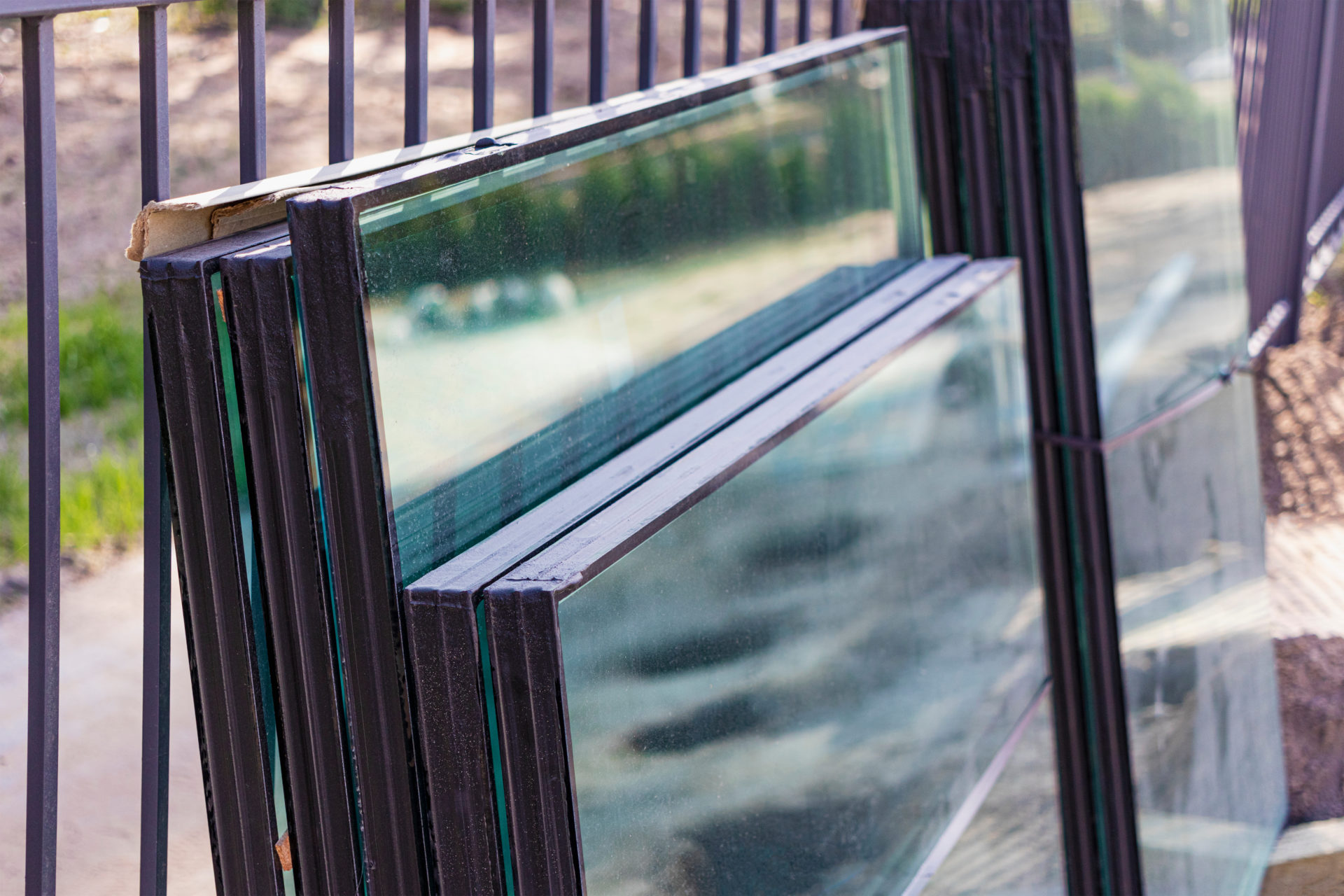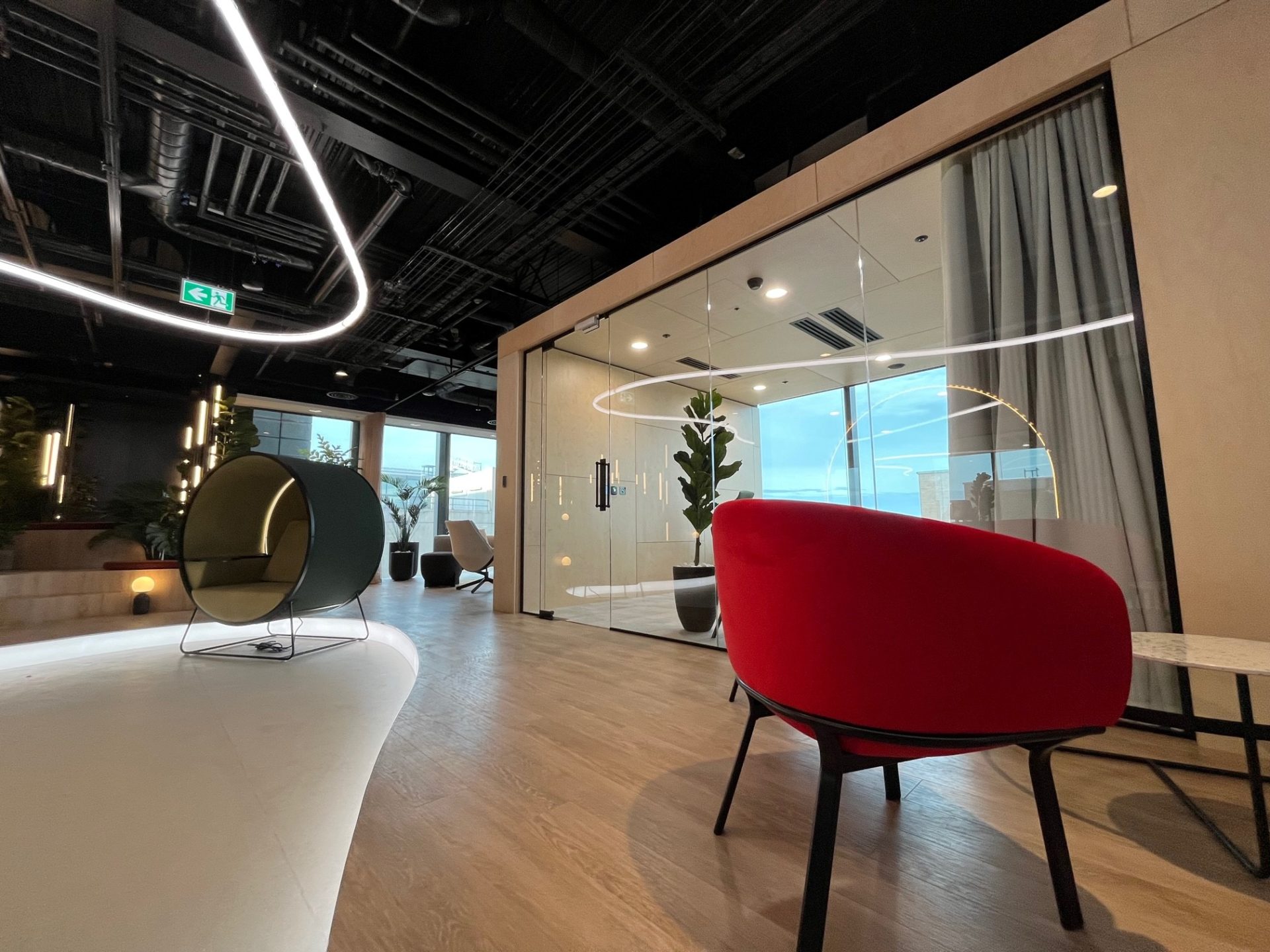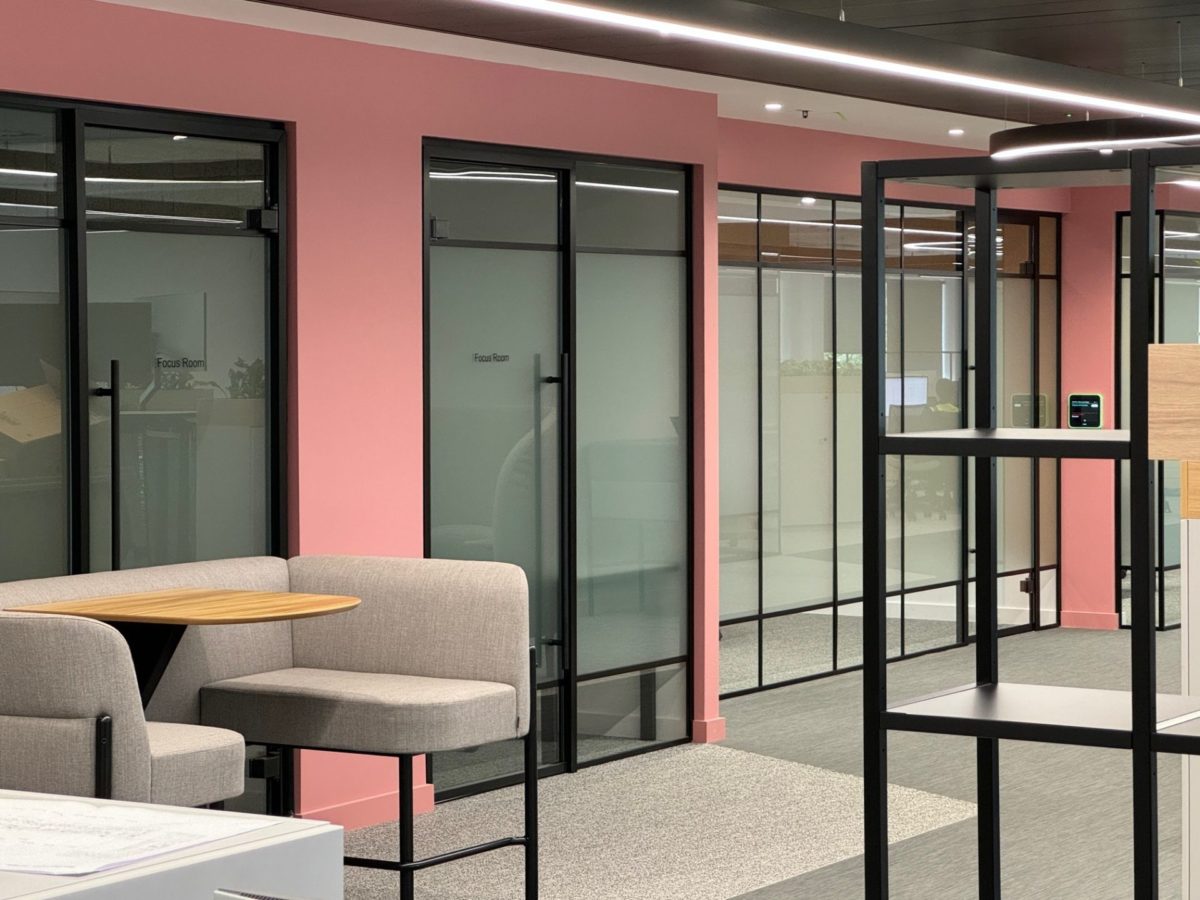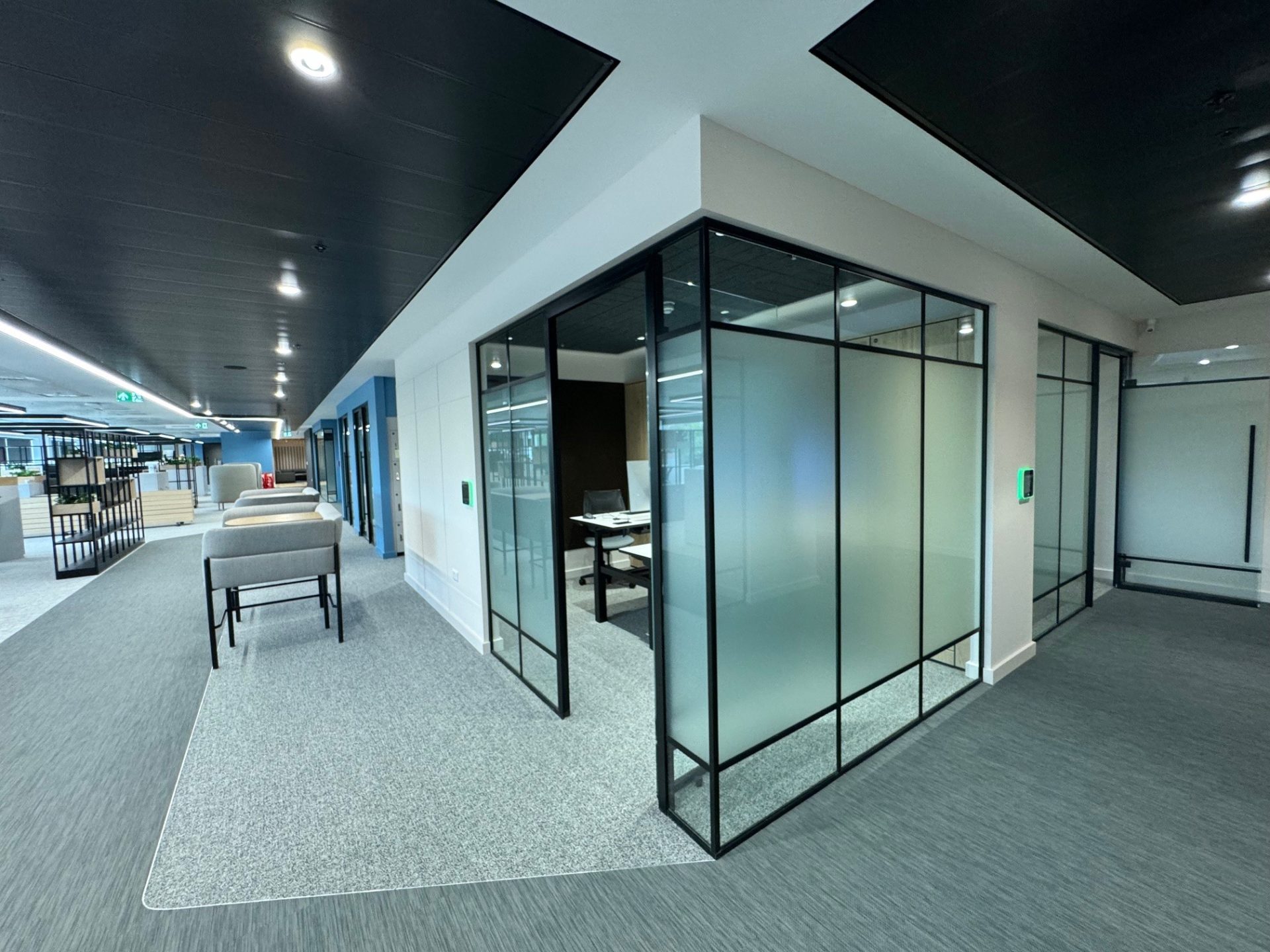05 / 11 / 2024
What is acoustic glass?
In such a busy, modern-day world, it can be difficult to escape all the noises that the outside has to offer, such as traffic, construction or just noisy people on the street. With the introduction of acoustic glass, or soundproof glass, we can help reduce or eliminate the amount of noise we experience on a daily basis, meaning less disruption to our sleep, work or just general downtime in our homes.
What is acoustic glass?
Acoustic glass is a specially designed type of glass that aims to reduce noise by preventing sound waves from passing from one side of the pane to the other. The design of acoustic glass involves a pane of laminated glass sandwiched between two panes of double glazing; the laminated glass helps to disrupt the sound waves from moving in or out of a room.
How does sound work?
Sound is a type of energy that travels in waves when an object vibrates. The vibration creates pressure waves that cause the particles in the surrounding medium (air, water, or solid) to also vibrate. The chain reaction of particles vibrating helps with transmission, and when the human ear detects these vibrations, we hear the sound.
Depending on the pitch of the sound, the waves will look different, with high-frequency sound having more oscillations, therefore a tighter wave, and low-frequency sound having fewer oscillations, hence a longer wave.
Amplitude defines the intensity or loudness of the sound, which we measure in decibels (dB). 50 dB is about the average amplitude for two people talking at a normal level, whereas a car might reach around 70-90 dB, and fireworks at about 140 dB.
All this information is relevant when understanding how acoustic glass works, and the benefits it can provide your home or office.

How does acoustic glass work?
Now looking into acoustic glass itself and how its design helps prevent the transmission of sound. As we know, acoustic glass is a pane of laminated glass sandwiched between two double-glazing panes. As with any object, when sound hits it, some of the waves become absorbed in the object, however, some still make it through the other side. For example, walking past a loud pub, you might faintly hear someone butchering ‘Sweet Caroline’ inside, but most of the sound is being absorbed into the brick walls and windows (thankfully).
Acoustic glass works so well at absorbing sound due to the two thick double-glazing panes; think, this is quadruple the thickness of just single-glazed panes. Between the double-glazing, there is also an air gap that contains argon gas which disrupts the soundwaves, greatly reducing the amount of sound passing through. Finally, add a pane of laminated glass between the whole operation and you have acoustic glass. Laminated glass converts the energy that sound produces into small amounts of heat, meaning the sound is also entirely eliminated.

Is acoustic glass worth it?
Now you might be thinking, “Will acoustic glass really make a difference and is it really worth it?”. Firstly, yes, it does make a difference. When you consider that single-glazing blocks around 29 dB of sound, and double-glazing around 33 dB, acoustic glazing can block up to 40 dB of sound. This might not sound like a huge difference, but the way in which decibels are measured means that a difference of 10 dB, for example, actually means that 40 dB is twice as loud as 30 dB. So the 7 dB difference is very noticeable.
This upgrade to acoustic glass, whether in your home or office, means loud noise such as police sirens (110-120 dB) can be cut in half, and private office meetings remain private.
Acoustic glass can also be worth it in many scenarios as acoustic glass can dramatically increase the strength of your glazing, adding extra security as well as improved energy efficiency to your home or workplace.
With the current cost of living crisis in the UK, cutting costs wherever possible is essential in reducing expenditures. Installing acoustic glass helps retain heat in the colder months, reducing your costs on heating whilst also keeping your home or office cooler in the summer months, therefore reducing costs on air conditioning and electrical fans. For a more in-depth look at how you can reduce your energy costs, read our blog, ‘Tips to create a more energy-efficient office’.

Where is acoustic glass beneficial?
There are many uses for acoustic glass, whether in your home or in the workplace. You might find that you live on a busy street and you simply want some noise reduction for better relaxation and sleep. Those working night shifts might benefit most from acoustic glass to escape the everyday noise of traffic, people and construction.
Workplaces, in particular offices, may greatly benefit from acoustic glass, particularly for meeting rooms, private workspaces or general city-centre working. The security of knowing private meetings are kept confidential can benefit your employees’ productivity and mental well-being, boosting morale and enthusiasm within the workplace. Acoustic glass, incorporated into glass partitions can maintain privacy within offices. You can find out more about maintaining privacy with our blog, ‘How to maintain privacy in glass-partitioned meeting rooms’.
At Office Blinds and Glazing, we are experts in glass partition installation, helping to create modern and practical office solutions, helping to create privacy and reduce noise in a number of industries. Acoustic partitioning is compatible with our single-glazing and double-glazing partitioning, allowing for sound absorption and reverb reduction throughout your office space. For more information on office soundproofing, read our blog, ‘A guide to office soundproofing’.
Unwanted noise is something we all experience every day, however, it’s not something you should have to deal with inside your own home or workplace. With acoustic glass, you can dramatically reduce the volume of noise you are subjected to every day so that you can live a more peaceful and serene life.
For more information, speak to a member of our expert team by contacting us today.
Enjoy this article? You might be interested in some of our others:
26 / 11 / 2024
What is the difference between tempered, toughened and laminated glass?
Within the glass industry, there are two main priorities; durability and safety. Although used widely across a range of industries, different types of glass have their own benefits for various uses. One variety of glass commonly used now is toughened glass, often referred to as safety glass. But what’s the difference between toughened glass, tempered glass, and laminated glass?



